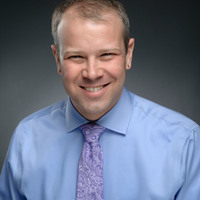Bryce Hughes
Montana State University - Bozeman, Education, Faculty Member
Research Interests:
Issues facing the LGBT (lesbian, gay, bisexual, and transgender) community can prove to be a legal nightmare for college and university administrators to address, particularly at religiously affiliated institutions like Jesuit colleges.... more
Issues facing the LGBT (lesbian, gay, bisexual, and transgender) community can prove to be a legal nightmare for college and university administrators to address, particularly at religiously affiliated institutions like Jesuit colleges. Administrators have to walk a fine line between nondiscrimination statutes and the religious beliefs and teachings of the school’s affiliation. This paper explores the main legal issues pertaining to the LGBT community on campus, including students, employees (faculty and staff), and university policy. It offers a historical perspective on these issues, including a quick overview of Catholic Church doctrine and relevant United States case law, and summarizes implications for administrators at Jesuit colleges and universities. Finally, it makes recommendations to administrators ways in which Jesuit colleges and universities can address these issues, staying true to their mission while being mindful of all human experiences.
Research Interests:
Research Interests:
Research Interests:
The purpose of this study was to identify college experiences that contribute to the frequency with which students think about their sexual orientations or sexual orientation salience. Using data from the Diverse Learning Environments... more
The purpose of this study was to identify college experiences that contribute to the frequency with which students think about their sexual orientations or sexual orientation salience. Using data from the Diverse Learning Environments (DLE) survey, administered by the Higher Education Research Institute (HERI) at UCLA, ordinary least squares regression was utilized to compare heterosexual students with their lesbian, gay, bisexual, and other (LGBO) peers to determine experiences that predict salience for each group. A more inclusive curriculum, participation in co-curricular diversity activities, and experiences of bias all related to increased sexual orientation salience. Participation in an LGBT student organization mattered more for LGBO students whereas campus-administered diversity activities were most important for heterosexual students.
Research Interests:
Although higher education has become more welcoming and inclusive of LGBT (lesbian, gay, bisexual, and transgender) faculty, staff, and students, many religiously affiliated colleges and universities face challenges to create an... more
Although higher education has become more welcoming and inclusive of LGBT (lesbian, gay, bisexual, and transgender) faculty, staff, and students, many religiously affiliated colleges and universities face challenges to create an LGBT-affirming environment due to religious beliefs regarding homosexuality. Jesuit universities, grounded in their commitment to holistic education and social justice, offer different models of practice in engaging the tension between religious proscriptions against homosexuality and providing support for the campus LGBT community. The purpose of this study then was to explore how members of a Jesuit, Catholic university addresses LGBT issues and organizational change.
The conceptual framework guiding this study brings together a model for understanding grassroots leadership in higher education with the Multicontextual Model for Diverse Learning Environments (MMDLE) to examine the everyday, sometimes invisible tactics and strategies employed by faculty, staff, and students at a Jesuit university to improve the climate for the campus LGBT community. This case study triangulates interviews with 43 grassroots leaders and 9 administrators, document review, and participant-observations. Embedded cross-case analyses were employed to highlight differences by constituent group (faculty, staff, students, and administrators), sexual orientation (sexual minority or heterosexual), and religious affiliation (Catholic or other affiliation).
Findings documented the conditions facing grassroots leaders at the institution as well as the tactics and strategies employed by grassroots leaders, their motivation for engaging in LGBT work, and sources of resilience. The campus climate was found to be generally positive, but participants pointed to areas where oppression persisted and continual education was needed. Participants also navigated a set of power dynamics, which were shaped by the university’s Catholic identity, but they encountered these dynamics less frequently than in earlier socio-historical eras on campus. Participants demonstrated a strong commitment to the university’s Jesuit mission, and for many, their involvement in LGBT issues was motivated by their religious beliefs. Tactics employed ranged from storytelling and allyship to more organized tactics like partnering with influential allies such as Jesuit priests. Finally, participants identified intrinsic and extrinsic sources of resilience. This study contributes to research on organizational change, campus climate, and shatters myths regarding LGBT members at religiously-affiliated institutions.
The conceptual framework guiding this study brings together a model for understanding grassroots leadership in higher education with the Multicontextual Model for Diverse Learning Environments (MMDLE) to examine the everyday, sometimes invisible tactics and strategies employed by faculty, staff, and students at a Jesuit university to improve the climate for the campus LGBT community. This case study triangulates interviews with 43 grassroots leaders and 9 administrators, document review, and participant-observations. Embedded cross-case analyses were employed to highlight differences by constituent group (faculty, staff, students, and administrators), sexual orientation (sexual minority or heterosexual), and religious affiliation (Catholic or other affiliation).
Findings documented the conditions facing grassroots leaders at the institution as well as the tactics and strategies employed by grassroots leaders, their motivation for engaging in LGBT work, and sources of resilience. The campus climate was found to be generally positive, but participants pointed to areas where oppression persisted and continual education was needed. Participants also navigated a set of power dynamics, which were shaped by the university’s Catholic identity, but they encountered these dynamics less frequently than in earlier socio-historical eras on campus. Participants demonstrated a strong commitment to the university’s Jesuit mission, and for many, their involvement in LGBT issues was motivated by their religious beliefs. Tactics employed ranged from storytelling and allyship to more organized tactics like partnering with influential allies such as Jesuit priests. Finally, participants identified intrinsic and extrinsic sources of resilience. This study contributes to research on organizational change, campus climate, and shatters myths regarding LGBT members at religiously-affiliated institutions.
